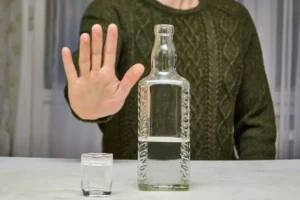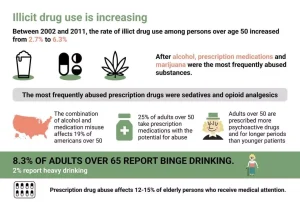Diabetes and Alcohol Effects of Alcohol on Diabetes

The glucose-lowering effect of alcohol is not restricted to the peak of drunkenness — it actually peaks hours later. As an added complication, there is a substantial overlap between the feeling of tipsiness (or drunkenness) and the symptoms of hypoglycemia. Both conditions can make you feel woozy, wobbly, hungry, tired, or confused.

Other health risks

Alcohol consumption can also lead to situational unawareness of low blood sugar levels. If you have diabetes, you may wonder if you should drink alcohol. When consumed with food, an occasional drink is OK, and if you choose wisely, it may have some positive effects on health. However, the organization recommends that females with diabetes limit their consumption to one drink per day and males limit their consumption to two drinks per day. Alcohol impairs your liver’s ability to produce glucose, so be sure to know your blood glucose number before you drink an alcoholic beverage. That sort of double impact can cause blood sugar levels to drop to dangerously low levels, a condition known as hypoglycemia.
How alcohol affects diabetes
Busch beers are good alternatives for people with diabetes due to the low carb content of most of the brand’s products — including their beers that are not branded as low carb. With 4.6 grams of carbs per 12-ounce (360-mL) serving, it provides roughly 50% fewer carbs than a regular Budweiser (11, 12). Most mixed drinks and cocktails are high in carbohydrate, thanks to added sugar, such as fruit juice, simple syrup, and even ice cream. There are several styles of beer available, including lager (the most popular), pale ale, pilsner, wheat beer, and India pale ale, to name a few.

What does drinking in moderation mean?

Because alcohol is highly addictive and research links heavy consumption to an array of adverse health effects, avoiding the beverage is the healthiest choice for anyone. Now, does that mean that someone with diabetes can’t drink alcohol? But if you have diabetes and want to enjoy happy hour, it’s best to take an approach that offers you some protection.
- When consumed on their own, hard liquors provide 0 grams of carbs but may lead to very low blood sugar levels.
- The Department of Veterans Affairs (DVA) warns that individuals with diabetes may have other conditions that alcohol could affect.
- Certain diabetes medications, such as insulin and sulfonylureas, can increase your risk of hypoglycemia, and alcohol further affects that risk.
- So carry hypo treatments around with you and always wear some medical ID.
- Your risk of having a hypo doesn’t go away after you stop drinking – it increases, and can last up to 24 hours.
That is why it’s important to monitor blood sugar for longer periods of time after consuming alcohol, such as overnight or into the next morning. “Alcohol can cause rapid changes in blood sugar in people with diabetes,” said Dr. Jordan Pinsker, Vice Present and Medical Director at Tandem Diabetes Care. To help keep health risks from alcohol at a low level, it’s safest not to regularly drink more than 14 units a week.
How Does Alcohol Impact Type 1 Diabetes?
The most important thing to know is that alcohol consumption can cause a significant blood sugar drop (hypoglycemia). Drinking alcohol carries the same health risks for people with diabetes as it does in otherwise healthy people. But there are certain risks related to having diabetes that are important to know.
Alcohol and Diabetes: What to Know
When blood sugar levels dip too low, the liver converts glycogen into glucose. This glucose is released into the bloodstream to bring levels up to normal. The same goes for cream liqueurs such as Bailey’s Irish Cream and Kahlua. These provide around 13 grams of carbs, of which 12 grams are from sugar, for every 2 ounces (60 grams) of liqueur (37).
Other problems related to alcohol and diabetes
Alcohol is absorbed directly into the bloodstream from the stomach or the small intestine, and it’s then carried through the body and delivered to the liver. While the liver metabolizes alcohol, it cannot convert stored glycogen into the glucose needed to stabilize blood sugar levels. Studies show drinking moderately (about one drink per day) may improve heart health and decrease the risk of diabetes. However, some studies don’t account for frequency, the population being studied, and the types of beverages consumed. However, excessive alcohol consumption increases the risk of hypoglycemia (low blood sugar), hyperglycemia (high blood sugar), liver disease, and more.
Benefits of Alcohol in Type 2 Diabetes
One way to stick to your drink limit is to not use your alcoholic beverage to quench your thirst. Have a no-calorie drink with a meal, or alternate an alcoholic drink with a nonalcoholic drink (within your alcoholic drink limit). Alcoholic beverages are made from grains or fruits (starches or sugars) through the processes of fermentation and distillation, so alcohol cannot be changed into glucose. Also, alcohol is the only nutrient that doesn’t require insulin to be broken down for energy—carbohydrate, protein, and fat do. From wine and spirits to beer and cocktails, our diabetes drink guide tells you all you need to know about mixing alcohol and diabetes.
Always test blood sugar before having an alcoholic beverage
Miller Lite is an American-style light lager made with can diabetics get drunk barley malt and corn syrup, among other ingredients.
